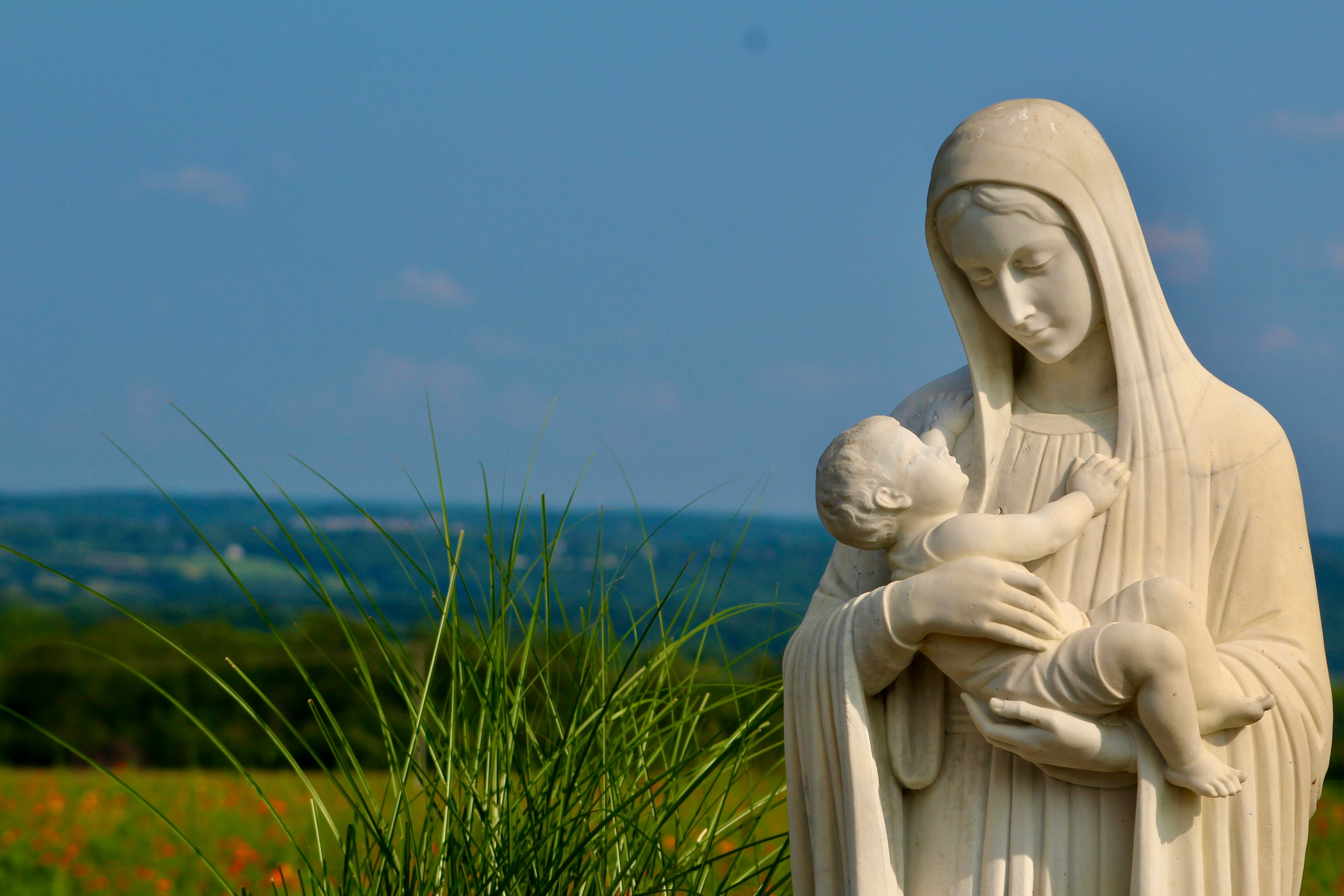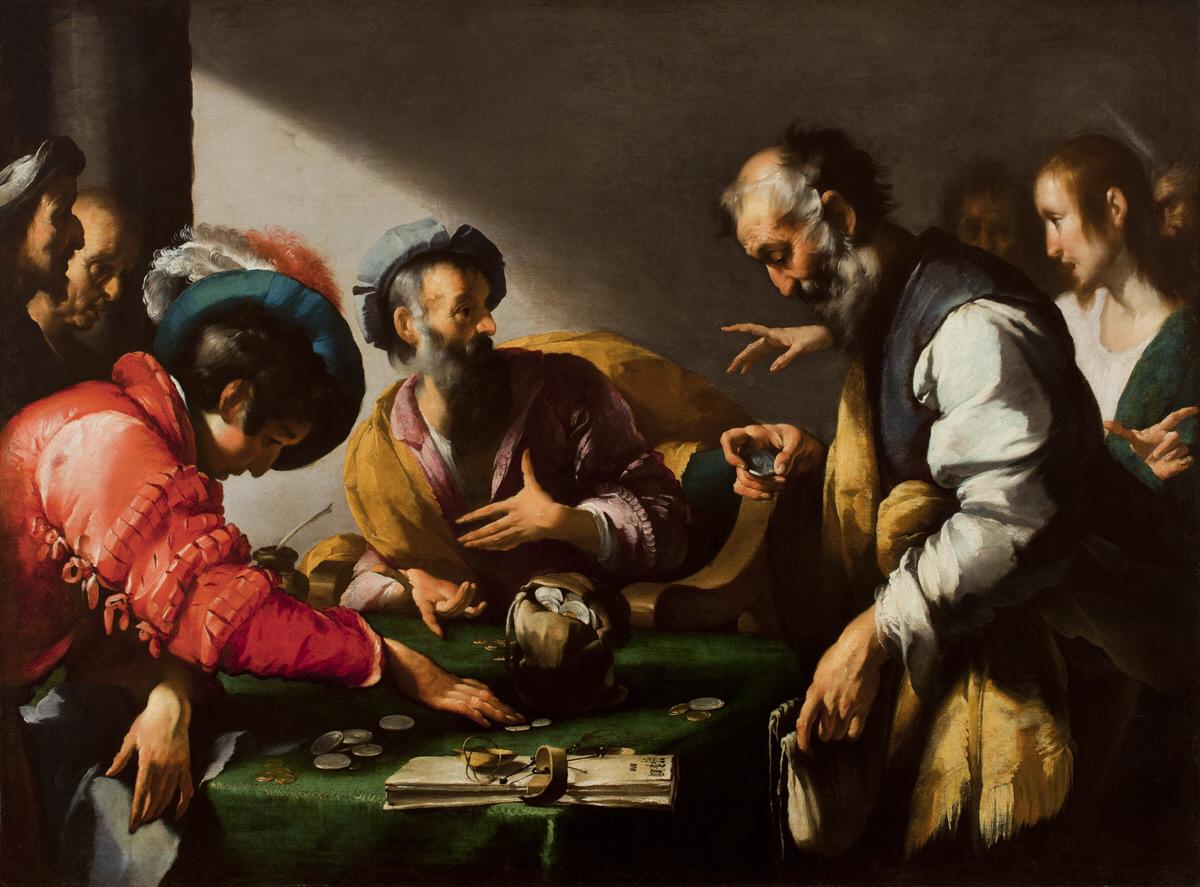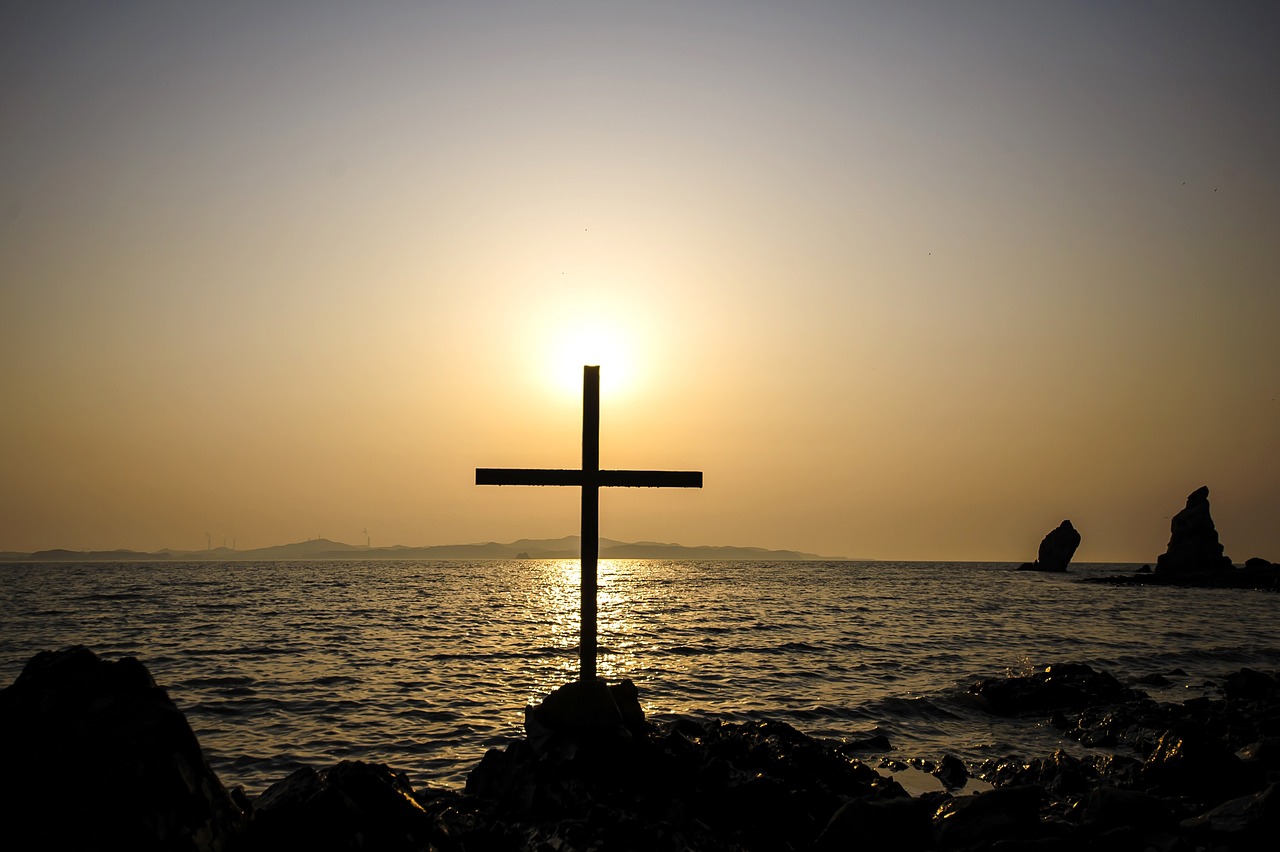In today’s Gospel, we read that Christ said to His followers: “Whoever causes one of these little ones who believe [in me] to sin, it would be better for him if a great millstone were put around his neck and he were thrown into the sea.” He then goes on to say that if your hand, foot, or eye cause you to sin, you should cut it off or pluck it out. Now, we need not take Jesus literally and begin to chop off body parts. He certainly does not want us to harm ourselves. But He does want us to get rid of the source of sin in our lives.
What does that look like today? It could be a toxic friend who leads us away from Christ rather than to Him. It could be social media or a TV show that causes us to forgo our faith or to do something contrary to the commandments. Or it could be spending too much time on our phone and putting this “idol” before God.
Anything that leads us away from God should be cast away. But that takes a lot of moral courage. It takes us having—and sustaining—the ability to ask God for His help, to take His hand, and to allow Him to lead us. This is especially difficult when others make fun of us, when others call us names or rebuke us for our faith, or when things don’t seem to go our way. During these times, we may feel abandoned by those on Earth and by God.
This loneliness can lead to despair. And that despair can pitch us into anger or even resentment, which of course can lead to sinful behavior. And you know what? That’s exactly what the evil one wants. In fact, he revels in those feelings because they create distance between us and God. So as we think about driving out the things that cause us to sin, we must remember that those things include the feelings and the thoughts that pull away from our Lord.
That is why a solid prayer life is so vital. When we feel these dark thoughts creeping in on us, when we feel them about to overtake us, or when we notice things of the outside world replacing things of the spiritual world, that is when we must train ourselves to press the proverbial pause button and find a quiet place to pray, to give ourselves to God, to listen to Him, and to tell Him we trust in Him.
Better yet, go see Him in Adoration. Sit with Him. Ask for the courage and the strength to battle the evil affecting you and to cut from your life the things causing you to sin. This is what Christ asks of us. This is how we can grow closer to Him.
En el Evangelio de hoy leemos que Cristo dijo a sus seguidores: “Al que sea ocasión de pecado para esta gente sencilla que cree en mí, más le valdría que le pusieran al cuello una de esas enormes piedras de molino y lo arrojaran al mar.” Luego continúa diciendo que si tu mano, pie u ojo te hacen pecar, debes cortártelo o arrancarlo. Ahora bien, no debemos tomar a Jesús literalmente y comenzar a cortar partes del cuerpo. Ciertamente no quiere que nos hagamos daño a nosotros mismos. Pero sí quiere que nos deshagamos de la fuente del pecado en nuestras vidas.
¿Cómo se ve eso hoy? Podría ser un amigo tóxico que nos aleja de Cristo en lugar de acercarnos a Él. Podrían ser las redes sociales o un programa de televisión que nos haga renunciar a nuestra fe o hacer algo contrario a los mandamientos. O podría ser pasar demasiado tiempo en el teléfono y empezar a poner este “ídolo” ante Dios.
Todo lo que nos aleje de Dios debe ser desechado. Pero eso requiere mucho valor moral. Se necesita que tengamos (y sostengamos) la capacidad de pedirle a Dios su ayuda, tomar su mano y permitirle que nos guíe. Esto es especialmente difícil cuando otros se burlan de nosotros, cuando otros nos insultan o nos reprenden por nuestra fe, o cuando las cosas no parecen salir como queremos. Durante estos tiempos, podemos sentirnos abandonados por aquellos en la Tierra y por Dios.
Esta soledad puede llevarnos a la desesperación. Y esa desesperación puede llevarnos a la ira o incluso al resentimiento, lo que claramente puede llevarnos a un comportamiento pecaminoso. ¿Y sabes qué? Eso es exactamente lo que quiere el maligno. De hecho, se deleita con esos sentimientos porque crean distancia entre nosotros y Dios. Entonces, cuando pensamos en expulsar las cosas que nos hacen pecar, debemos recordar que esas cosas incluyen los sentimientos y pensamientos que nos alejan de nuestro Señor.
Por eso es tan vital una vida de oración sólida. Cuando sentimos que estos pensamientos oscuros empiezan a entrar la mente, cuando sentimos que están a punto de apoderarse de nosotros, o cuando notamos que las cosas del mundo exterior empiezan a reemplazar a las cosas del mundo espiritual, en estos momentos debemos entrenarnos a pausar y encontrar un lugar tranquilo para orar, entregarnos a Dios, escucharlo y decirle que confiamos en Él.
Mejor aún, anda a verlo en el Santísimo. Siéntate con Él. Pide el valor y la fuerza para luchar contra el mal que te afecta y cortar de tu vida las cosas que te hacen pecar. Esto es lo que Cristo nos pide. Así es cómo podemos acercarnos más a Él.
 Susan Ciancio has a BA in psychology and a BA in sociology from the University of Notre Dame, with an MA in liberal studies from Indiana University. For the past 19 years, she has worked as a professional editor and writer, editing both fiction and nonfiction books, magazine articles, blogs, educational lessons, professional materials and website content. Thirteen of those years have been in the pro-life sector. Currently Susan freelances and writes weekly for HLI, edits for American Life League, and is the executive editor of Celebrate Life Magazine. She also serves as executive editor for the Culture of Life Studies Program—an educational nonprofit program for K-12 students. You can reach her at slochner0.wixsite.com/website.
Susan Ciancio has a BA in psychology and a BA in sociology from the University of Notre Dame, with an MA in liberal studies from Indiana University. For the past 19 years, she has worked as a professional editor and writer, editing both fiction and nonfiction books, magazine articles, blogs, educational lessons, professional materials and website content. Thirteen of those years have been in the pro-life sector. Currently Susan freelances and writes weekly for HLI, edits for American Life League, and is the executive editor of Celebrate Life Magazine. She also serves as executive editor for the Culture of Life Studies Program—an educational nonprofit program for K-12 students. You can reach her at slochner0.wixsite.com/website.
Feature Image Credit: Arturo Rey, unsplash.com/photos/grayscale-photograph-of-jesus-christ-statue-CvnVk7GGQCg






 Tami Urcia grew up in Western Michigan, a middle child in a large Catholic family. She spent early young adulthood as a missionary in Mexico, studying theology and philosophy, then worked and traveled extensively before finishing her Bachelor’s Degree in Western Kentucky. She loves tackling projects, finding fun ways to keep her little ones occupied, quiet conversation with the hubby and finding unique ways to love. She works full time at Diocesan, is a guest blogger on
Tami Urcia grew up in Western Michigan, a middle child in a large Catholic family. She spent early young adulthood as a missionary in Mexico, studying theology and philosophy, then worked and traveled extensively before finishing her Bachelor’s Degree in Western Kentucky. She loves tackling projects, finding fun ways to keep her little ones occupied, quiet conversation with the hubby and finding unique ways to love. She works full time at Diocesan, is a guest blogger on 

 Deacon Dan Schneider is a retired general manager of industrial distributors. He and his wife Vicki have been married for over 50 years. They are the parents of eight children and thirty-one grandchildren. He has a degree in Family Life Education from Spring Arbor University. He was ordained a Permanent Deacon in 2002. He has a passion for working with engaged and married couples and his main ministry has been preparing couples for marriage.
Deacon Dan Schneider is a retired general manager of industrial distributors. He and his wife Vicki have been married for over 50 years. They are the parents of eight children and thirty-one grandchildren. He has a degree in Family Life Education from Spring Arbor University. He was ordained a Permanent Deacon in 2002. He has a passion for working with engaged and married couples and his main ministry has been preparing couples for marriage.
 Kathryn Mulderink, MA, is married to Robert, Station Manager for Holy Family Radio. Together they have seven children (including Father Rob), and eight grandchildren. She is President of the local community of Secular Discalced Carmelites and has published five books and many articles. Over the last 30 years, she has worked as a teacher, headmistress, catechist, Pastoral Associate, and DRE, and as a writer and voice talent for Catholic Radio. Currently, she serves the Church by writing and speaking, and by collaborating with various parishes and to lead others to encounter Christ and engage their faith. Her website is
Kathryn Mulderink, MA, is married to Robert, Station Manager for Holy Family Radio. Together they have seven children (including Father Rob), and eight grandchildren. She is President of the local community of Secular Discalced Carmelites and has published five books and many articles. Over the last 30 years, she has worked as a teacher, headmistress, catechist, Pastoral Associate, and DRE, and as a writer and voice talent for Catholic Radio. Currently, she serves the Church by writing and speaking, and by collaborating with various parishes and to lead others to encounter Christ and engage their faith. Her website is 



 Pamela Kavanaugh is a grateful wife, mother, and grandmother who has dedicated her professional life to Catholic education. Though she has done her very best to teach her students well in the subjects of language and religion, she knows that she has learned more than she has taught. She lives, teaches, and writes in southwest suburban Chicago.
Pamela Kavanaugh is a grateful wife, mother, and grandmother who has dedicated her professional life to Catholic education. Though she has done her very best to teach her students well in the subjects of language and religion, she knows that she has learned more than she has taught. She lives, teaches, and writes in southwest suburban Chicago.
 Deanna G. Bartalini, M.Ed.; M.P.A., is a certified spiritual director, writer, speaker and content creator. The
Deanna G. Bartalini, M.Ed.; M.P.A., is a certified spiritual director, writer, speaker and content creator. The 
 Mike Karpus is a regular guy. He grew up in Michigan’s Upper Peninsula, graduated from Michigan State University and works as an editor. He is married to a Catholic school principal, raised two daughters who became Catholic school teachers at points in their careers, and now relishes his two grandchildren, including the older one who is fascinated with learning about his faith. He also has served on a Catholic school board, a pastoral council and a parish stewardship committee. He currently is a lector at Mass, a Knight of Columbus, Adult Faith Formation Committee member and a board member of the local Habitat for Humanity organization. But mostly he’s a regular guy.
Mike Karpus is a regular guy. He grew up in Michigan’s Upper Peninsula, graduated from Michigan State University and works as an editor. He is married to a Catholic school principal, raised two daughters who became Catholic school teachers at points in their careers, and now relishes his two grandchildren, including the older one who is fascinated with learning about his faith. He also has served on a Catholic school board, a pastoral council and a parish stewardship committee. He currently is a lector at Mass, a Knight of Columbus, Adult Faith Formation Committee member and a board member of the local Habitat for Humanity organization. But mostly he’s a regular guy.